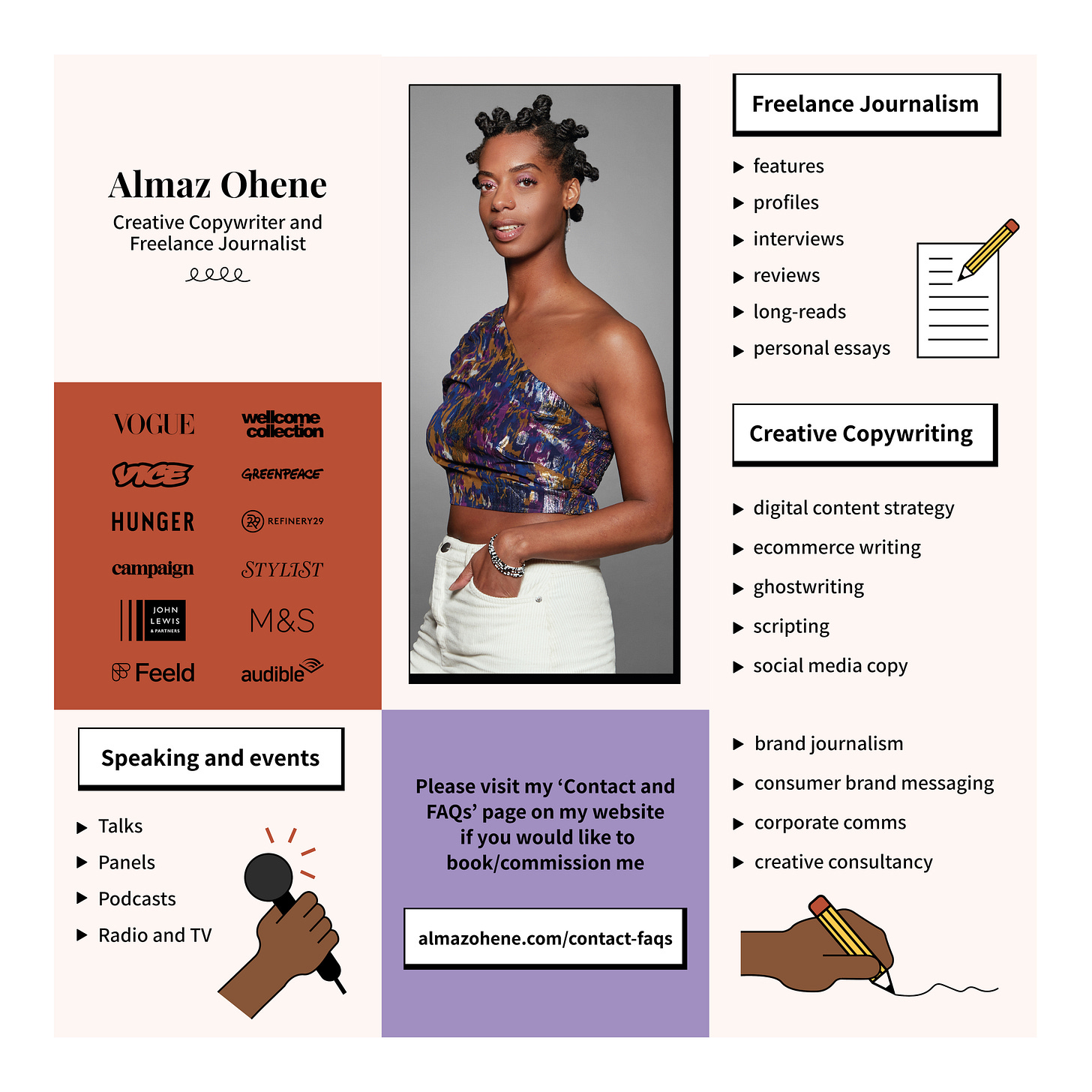#65: ENM Relationships 101: What is an 'ethical non-nonogamous' relationship? And is it for me?
Sponsored post by enmliving.com
This content is not behind a paywall, but since it takes time to create and upload each piece, do please consider becoming a paid subscriber of ‘She Dares to Say’ (especially if this project is something that you value, and you have the means to do so). A paid subscription gets you bonus posts each month and unrestricted access to the full archive of this newsletter. A paid subscription is either billed monthly at £3.79 or annually at £34.99.
If you would prefer to make a one-off donation, feel free to send a contribution via PayPal.
You can also show your enjoyment without spending £££, by liking, commenting, restacking via Notes or just generally sharing
[Image description: Text ‘What is an ‘ethical non-monogamous’ relationship? And is it for me? on a lilac background]
Note: Throughout January, I’m publishing content that’s focused on non-monogamy as I’m preparing for a talk called ‘Guiding Clients in Navigating Open and Polyamorous Relationships’ which is taking place online on Wednesday 29 January. Full info about the talk is in the second half of this mailout
The following piece is a sponsored post by enmliving.com.
[Image description: Two women sitting at the kitchen table in sunlight and laughing]
ENM Relationships 101: What is an ethical non-monogamous relationship, and is it for me?
When you hear the term “ethical non-monogamy” (ENM), what comes to mind?
Does it spark curiosity, challenge your assumptions, or make you wonder if it’s a fit for your life?
ENM, at its core, is about fostering relationships that embrace honesty, communication, and mutual consent – while stepping outside the boundaries of traditional monogamy.
Let’s break it down, explore the key principles, and help you figure out if this approach to relationships aligns with your needs and values.
What Exactly Is Ethical Non-Monogamy?
Ethical non-monogamy refers to a broad range of relationship styles in which people consensually engage in romantic or sexual connections with more than one partner.
Unlike infidelity, ENM is grounded in honesty, transparency, and mutual consent.
All parties involved are fully aware and supportive of the arrangement.
Common forms of ENM include:
Polyamory: Having multiple loving, committed relationships simultaneously.
Open Relationships: A partnership where both people agree to pursue other sexual connections outside the relationship.
Swinging: Couples exploring sexual experiences with others, often in social settings.
Relationship Anarchy: A flexible approach that emphasizes individual autonomy and de-emphasizes labels or hierarchies in relationships.
ENM offers diverse ways to approach love and connection, allowing individuals to structure relationships based on mutual values and personal needs.
[Image description: A man giving a piggyback ride to a woman - outdoors - smiling and having fun]
How Does ENM Work
At the heart of ethical non-monogamy lies communication and trust.
It’s not a free-for-all, but rather a carefully navigated dynamic that only works when everyone involved is on the same page.
Successful ENM is built on mutual respect and clear agreements about what each person wants and needs.
Here are a few fundamental principles that guide ENM:
Consent: Every partner agrees to the relationship structure without coercion or manipulation.
Transparency: Honest and open conversations about desires, boundaries, and feelings are key to keeping things running smoothly.
Boundaries: Each person defines what feels comfortable and safe, whether it's regular check-ins or specific limits on outside connections.
Compassion: Understanding and addressing emotions like jealousy or insecurity with empathy and care is essential for maintaining harmony.
ENM isn’t a “one-size-fits-all” approach.
The specifics will vary based on the people involved, but these core principles help create a framework where everyone feels respected, understood, and supported.
[Image description: A man writing something in a notebook while another man hugs him from behind]
Is ENM Right for You?
Deciding whether ethical non-monogamy is right for you starts with self-reflection.
ENM isn’t about avoiding challenges in monogamy or simply having more freedom – it’s a relationship approach that takes effort.
To make it work, you need skills like honesty, emotional self-awareness, and clear communication. These help build trust, set healthy boundaries, and create stronger connections.
But here’s the thing: getting good at them takes time, practice, and patience. It’s all part of the process of growing and learning how to navigate relationships in a deeper, more meaningful way.
Here are a few questions to help you explore whether it could be the right choice for you:
How do I feel about sharing emotional or sexual connections with others? Jealousy is natural, but am I willing to work through it with openness and compassion?
Am I comfortable with frequent and transparent communication? Can I openly discuss boundaries, feelings, and needs?
Do I trust myself and my partner(s) to handle complex emotions? Am I willing to navigate challenges with empathy, patience, and a growth mindset?
What are my personal values around love and commitment? Does traditional exclusivity align with what I want, or am I open to exploring other possibilities?
ENM isn’t for everyone, and that’s perfectly okay.
What matters most is finding a relationship structure that aligns with who you are and what you need.
Are you drawn to the idea of exploring love and intimacy beyond a single partnership?
Does it feel like a chance to live more authentically?
Or do you find comfort and fulfillment in the security and focus of monogamy?
There’s no right or wrong answer here.
For some, ENM offers a liberating way to connect and express themselves. For others, monogamy feels like the most genuine path.
The key is figuring out what resonates with you and pursuing relationships that reflect your values and authentic self.
[Image description: A man holding hands with a woman, smiling and having fun]
Addressing Common Misconceptions
ENM is often misunderstood. Let’s clear up some of the most common myths:
“It’s just an excuse to cheat.”
Not at all.
Cheating involves betrayal and secrecy, while ENM is built on honesty, consent, and mutual agreement.
In ENM, every person involved is aware of and supports the relationship structure.
“ENM means you don’t love your partner enough.”
Quite the opposite.
Many people in ENM relationships report deeper communication, trust, and emotional connection with their partners.
ENM encourages open conversations about needs and desires, strengthening bonds rather than diminishing them.
“ENM is just about sex.”
This is a big misconception.
While sexual freedom can be a component of ENM, many forms – like polyamor –prioritize emotional intimacy and meaningful, committed relationships.
ENM is about crafting connections that reflect the values and desires of those involved, whether that’s romantic, sexual, or both.
[Image description: Two women sitting outdoors and having fun with their dogs]
How to Explore ENM Safely
If you’re curious about ENM, here’s a starting point:
Educate Yourself
Learn about the different ENM dynamics by reading books, articles, and blogs, listening to podcasts, and joining online communities.
Understanding various forms like polyamory, open relationships, and relationship anarchy will broaden your perspective.
Talk to Your Partner
Have an open, honest conversation with your partner.
Share your thoughts, listen to their views, and make sure you're aligned.
This is key to building trust and ensuring both of you feel heard.
Define Boundaries
If you decide to try ENM, establish clear, mutual boundaries.
Discuss what’s comfortable emotionally and physically, and agree on what’s off-limits.
Revisit these boundaries as your relationship evolves.
Seek Support
ENM can bring up complex emotions.
Working with a therapist or relationship coach experienced in ENM can help you navigate challenges, strengthen communication, and provide guidance when needed.
Final Thoughts
Ethical non-monogamy is more than just a relationship label – it’s a mindset that values honesty, respect, and intentional connections.
Whether you’re considering ENM or simply curious, the most important thing is to honor what feels right for you and your relationships.
So, is ENM for you? Only you can answer that.
But remember, there’s no single “right” way to love – just the way that brings you joy, fulfillment, and feels true to who you are.
The above piece is a sponsored post by enmliving.com.
[Image description: Promo asset for Almaz’s Animas Coaching talk. Text: Coaching Modern Relationships Navigating Patterns of Intimacy and Connection Featured Speaker Almaz Ohene]
Animas Centre for Coaching – Purpose-centred coach training for individuals and organisations – is continuing its comprehensive relationship coaching programme across early 2025 to help deepen understanding of modern intimacy.
The in-depth programme covers the latest trends, from polyamory to sex positivity, all guided by renowned leaders in relationship psychology and coaching.
I’m running a session called ‘Guiding Clients in Navigating Open and Polyamorous Relationships’ on Wednesday 29 January 2025, 19:00–20:30 GMT
By the end of the session, you will:
Understand the key principles of open and polyamorous relationships and how they differ from monogamous structures.
Learn how to foster open communication and trust between partners in consensual non-monogamous relationships.
Gain strategies to help clients navigate common emotional challenges, including jealousy and boundary-setting.
Explore ways to support clients in ensuring emotional well-being while engaging in non-traditional relationship structures.
Broaden your professional toolkit to include skills for working with clients exploring diverse forms of relating.
[Image description: Text ‘PRODUCED BY’]
I’m Almaz Ohene, a Creative Copywriter, Freelance Journalist and Accidental Sexpert.
Watch my showreel highlighting the work I’ve been doing within the intimacy pleasure, intimacy and sex ed sectors.
This content is not behind a paywall, but since it takes time to create and upload each piece, do please consider becoming a paid subscriber of ‘She Dares to Say’ (especially if this project is something that you value, and you have the means to do so). A paid subscription gets you bonus posts each month and unrestricted access to the full archive of this newsletter. A paid subscription is either billed monthly at £3.79 or annually at £34.99.
If you would prefer to make a one-off donation, feel free to send a contribution via PayPal.
You can also show your enjoyment without spending £££, by liking, commenting, restacking via Notes or just generally sharing 😃
















